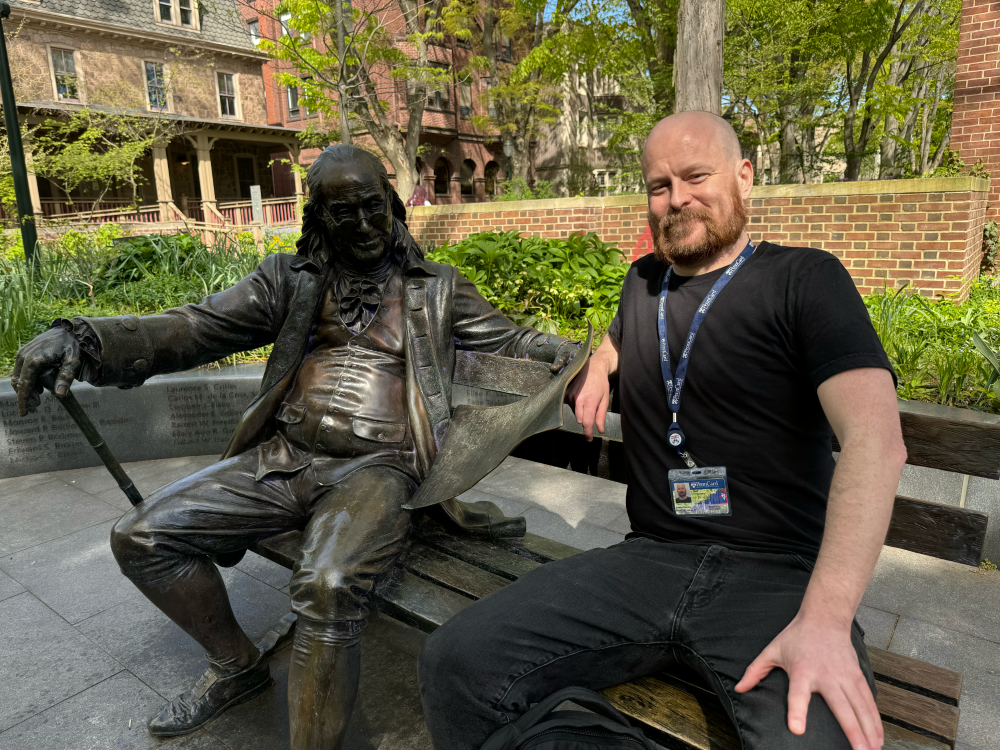Hello!#
I’m James Dennis. I make ideas real, whether through code, music, or writing.
I have built data pipelines & backends for Spotify, a payments gateway and deployment tooling for Venmo, and ML pipelines that processed hundreds of terabytes of video for HBOMax. I developed a mobile player for VHX (acquired by Vimeo) and an event admission system for The Whitney Museum’s biennial. While doing DARPA funded mental health research with Qntfy, I designed and built out a system that collected data from every major social network and fitness tracker.
At UPenn, where I currently am, I have contributed to the design of their new AI degree programs, built AI tools to support students and professors, helped construct Coursera lessons, published research with Chris Callison-Burch, and I will be mentoring students in Wharton’s GenAI Studio this fall.
Through J2 Labs, my former consultancy, I built many backends and infrastructures for numerous smaller companies, some acquired, others that ran their course as early stage companies do.
My open source creations include Schematics (a type system for Python focused on human data types), Brubeck (a concurrent server framework), and Micro Army (a distributed load testing tool). I’m currently rewriting Micro Army in Rust as Killa Beez. Users of my open source projects include Apple, Huffington Post, Warby Parker, and Criterion Collection.
I co-founded several tech communities including Hack && Tell, Brooklyn Swift, and Dumbo Tech Breakfast. I studied computer science at Northeastern University and I was in the first batch at Recurse Center.

